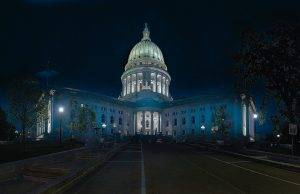Can Senior Citizens Still Work In The Federal Government? What Kind of Jobs?

Retirement, for many, is a well-earned phase of life, marking the end of a long and often demanding career. It’s a time when individuals can finally kick back, enjoy the fruits of their labor, and pursue leisurely activities they may have put on hold. However, the landscape of retirement is changing, and not every senior is content with a life of leisure. Many older Americans are choosing to remain in the workforce, seeking new opportunities and challenges. Some are even considering working for the U.S. government, wondering if there are government jobs available for seniors and what kind of roles they can pursue.
In this article, we’ll explore the possibilities and opportunities for senior citizens to work in the federal government, including federal jobs with no age limits and military jobs for seniors over 60.
Can You Still Work Even if You’re A Senior?
The idea of retirement has undergone transformation throughout the years. In the past, retirement signified a total exit from the labor force. However, in contemporary times, an increasing number of older individuals are choosing to remain employed for a variety of motives. Financial security, the desire for social interaction, mental stimulation, and a sense of purpose are some of the driving forces behind this trend.
Working beyond the traditional retirement age of 65 is becoming increasingly common. Seniors are finding fulfilling opportunities in a variety of fields, and the federal government is no exception.
How About Working for the Federal Government?
The federal government, with its diverse array of agencies and job opportunities, is an attractive option for seniors looking to extend their careers. The U.S. government offers a wide range of roles, many of which are well-suited for older individuals. Now, let’s delve into some of the employment opportunities within the government sector tailored for senior citizens and retirees:
- Jobs in the Court System – The United States judicial system provides job opportunities at the municipal, state, and federal tiers. Seniors can serve as mediators, court clerks, probation officers, court reporters, or jury administrators.
- Jobs in Health Care – Governmental jobs in healthcare are available, even for those without medical degrees. Seniors can work as interpreters, nurses, or in various clerical positions in government-funded health facilities.
- Jobs in Veterans Administration – The Department of Veterans Affairs (VA) in the United States offers healthcare services to veterans who meet the eligibility criteria. Seniors can find roles as administrative assistants, event organizers, psychologists, or social workers to support veterans’ needs.
- Jobs With the U.S. Fish and Wildlife Service – If you’re passionate about environmental conservation, consider roles as wildlife conservationists, fire management personnel, fish and wildlife managers, or even positions within national parks.
- Jobs With the Postal Service – The United States Postal Service (USPS) offers positions such as post office clerks, mail carriers, and processing clerks. These roles often provide stability and job security.
- Jobs in Local Government – Seniors can engage with their communities by working in various roles in local government, including voting or election officials, public works positions, and city hall employees.
Are There Federal Jobs with No Age Limits?
While there are age restrictions for certain federal positions, many government jobs have no specific age limits. This inclusiveness enables older individuals to seek professions that match their abilities, passions, and background. Civilian roles within the federal government often offer opportunities for older individuals to contribute their expertise. These roles encompass a wide range of functions, from administrative and managerial positions to specialized technical roles.
One notable aspect of federal employment is the flexibility it provides. Seniors can often find positions that accommodate their unique needs and preferences, whether they seek part-time or full-time employment.
Military Jobs for Seniors Over 60
While active duty military service has age limits, there are exceptional cases where individuals over 60 have served in the U.S. military. Congress sets the age limits for enlistment in active duty, typically allowing individuals to join between the ages of 17 and 42. However, the National Defense Authorization Act raised the age limit to 42 in 2006 to address recruitment needs.
Seniors can still find meaningful roles within the military, albeit not in active service, but in civilian jobs. The military may consider lifting some age restrictions depending on specific needs, but such cases are rare. Nonetheless, military-civilian jobs can provide valuable opportunities for seniors in roles such as medical professionals, support staff, or reservists. These civilian positions offer a chance to contribute to the military’s mission and make a difference while maintaining a distinct separation from active military duties.
What Would be the Challenges of Getting These Government Jobs for Retirees?
While there are ample opportunities for seniors in the federal government, there may be challenges to consider. The competitive nature of government employment means that applicants may need to compete with a broad pool of candidates, including recent graduates and mid-career professionals. Tailoring resumes and cover letters to emphasize relevant experience can help older applicants stand out.
Additionally, older workers may encounter generational differences in the workplace, as they interact with colleagues from diverse age groups. Adapting to new technologies and work practices may also be necessary.
Senior Citizens Can Still Work in the Federal Government
In conclusion, retirement no longer means the end of one’s career, and many seniors are embracing the opportunity to continue working. The federal government offers a wide array of job opportunities suitable for seniors, including roles in the court system, healthcare, veterans’ affairs, conservation, postal services, and local government. While some positions have age restrictions, there are many federal jobs with no age limits, welcoming senior citizens to contribute their skills and expertise. Whether seeking a second career or desiring to stay active and engaged, senior citizens have a place in the federal government workforce.
The evolving nature of retirement provides senior citizens with the opportunity to select the direction that aligns most effectively with their dreams and financial requirements. Working in the federal government can provide seniors with a sense of purpose, financial security, and the chance to continue making meaningful contributions to their communities and the nation as a whole. As the workforce continues to evolve, older workers will play an increasingly vital role in shaping the future of the federal government.
In an age where retirement is redefined, seniors can still embark on new professional journeys, proving that age is just a number when it comes to contributing to the federal workforce.

